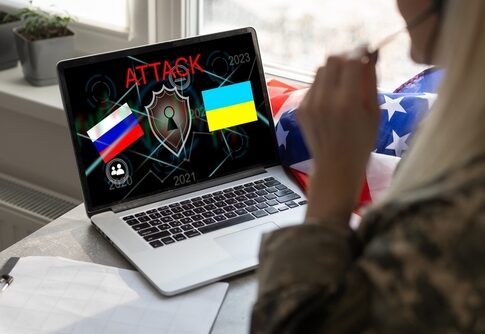It is no longer a war between bullets and bombs. Drones and sabotage are increasingly being used as hybrid warfare tactics. Russia’s actions exacerbate the threat perception among Western nations. NATO’s strategies must evolve to counter these contemporary threats.
A New Paradigm of Conflict
Hybrid warfare is redefining modern conflict by combining conventional and unconventional tactics such as sabotage, cyberattacks, and drones. Russia, among other countries, is at the forefront, undermining Western security paradigms. Such complex tactics blur the line between peace and war, complicating defensive measures. Western nations, particularly NATO members, face significant challenges in countering these threats without devolving into full-fledged wars.
Hybrid warfare is distinguished by the use of modern technology for strategic advantage. According to reports, mysterious drones have been flying over strategic sites such as oil rigs and military bases, demonstrating the scope and audacity of these strategies. The possibility of espionage and wartime positioning is high, necessitating an urgent upgrade of defense mechanisms.
Sabotage by drone is a growing problem inside Russia and is likely to spread elsewhere — my take for Forbeshttps://t.co/hQqVs2SVKE
— David Hambling (@David_Hambling) June 5, 2024
Geopolitical Ramifications
Western nations, particularly those aligned with NATO, are among the primary targets of Russia’s hybrid tactics, which include a variety of measures to disrupt and destabilize. Recent drone incursions and cyberattacks indicate a strategic focus on bringing opponents below conventional warfare thresholds. Analysts advocate for immediate resilience building, citing NATO’s potential to adopt a more robust response framework.
Some of it was espionage, and they were charting a lot of things. Some of it was positioning in case of peacekeeping. The ability of these tactics to exploit existing vulnerabilities requires a rethinking of defense and intelligence priorities. Hybrid warfare advocates emphasize its cost-effectiveness as an alternative to conventional conflicts.
A new record has been set with two days remaining l…
As of the morning of December 30, Russian military personnel losses for this month have hit 45,810—a record since the start of the full-scale war. pic.twitter.com/AZzPqdPk57
— Hybrid Warfare Analytical Group/UCMC (@hwag_ucmc) December 30, 2024
Ensuring Preparedness
To effectively address these challenges, allies must agree on who is responsible and work together. The interaction of military, cyber, and economic factors necessitates coordinated defense efforts. Sanctions and strategic innovations are currently being developed to reduce risks while ensuring a quick response to any disruption attempts.
“Russia has stepped it up across the board, and as a result, it is reaching levels that are of growing concern” – James Appathurai
NATO and the EU are actively developing policies and frameworks to combat hybrid threats, including resilient networks and intelligence-sharing protocols. Given the nuances and ambiguities inherent in modern warfare strategies, maintaining unity and coordination among these nations becomes even more critical.
Sources:


